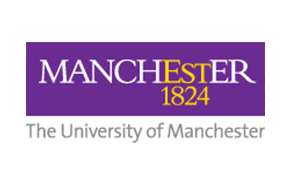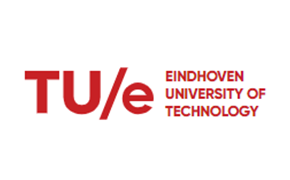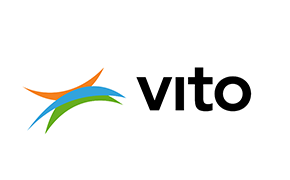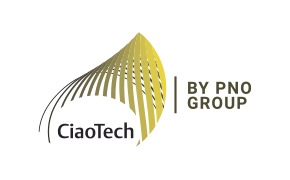The GLAMOUR Consortium comprises 10 partners from 6 countries with strong multidisciplinary competences required for carrying out the work plan and match project objectives.

University of Manchester PROJECT COORDINATOR
The University of Manchester is the largest university by student enrolment number in the United Kingdom (~40.000 students). The University of Manchester (UNIMAN) is one of the world’s top 50 universities. Research is at the heart of the University, no fewer than 20 former staff and students have gone on to be Nobel laureates and the university currently has 4 Nobel laureates as members of the academic staff.
The University is committed to becoming one of the world’s top 25 research universities by 2020; in 2019 the Department of Chemical Engineering and Analytical Science at the University of Manchester was ranked 22nd globally and 5th in the UK according to the QS World University ranking. The University has over 1,800 staff active in research and over £190m of funding for research earned each year. The University has participated in 400+ FP7 projects and coordinated 39 of these. The University has also hosted 33 European Research Council awards and 31 Marie Curie Initial Training Networks. UNIMAN is currently participating in >110 H2020 projects, including 25+ Marie Sklodowksa Curie Individual Fellowships. Furthermore, the Department of Chemical Engineering and Analytical Science is the largest of its kind by student numbers (about 1000 undergraduate and postgraduate students) and it has more than 50 faculty members. It has been confirmed as one of the research power houses in chemical engineering in the UK during the 2014 Research Excellence Framework (REF) with 90% of its output recognized as world-leading (30%) or internationally excellent (60%). Role within the project Project coordinator; WP leader in the techno-economic and sustainability assessment; research activity in chemical looping reforming.

Eindhoven University of Technology
Eindhoven University of Technology (TU/e) is a research university specializing in engineering science & technology. Its education, research and knowledge valorization contribute to:
- science for society: solving the major societal issues and boosting prosperity and welfare by focusing on the Strategic Areas of Energy, Health and Smart Mobility
- science for industry: the development of technological innovation in cooperation with industry
- science for science: progress in engineering sciences through excellence in key research cores and innovation in education
The research group Sustainable Process Engineering, is part of the faculty of Chemical Engineering and Chemistry at the Eindhoven University of Technology. The main objective of the research group is the development of novel integrated reactor concepts (such as membrane reactors, micro reactors, dynamically operated reactors, structured catalysts and reactors) based on improved fundamental knowledge using validated advanced (multi-phase) reactor models. This is achieved by employing a combination of state-of-the-art numerical models (at different levels of detail using the multi-level modelling approach), advanced (non-invasive) experimental techniques and experimental demonstration of novel reactor concepts (proof of concept). Role within the project Project technical manager; WP5 leader, testing of the system up to TRL5.

Nederlandse Organisatie voor Toegepast Natuurwetenschappelijk Onderzoek
TNO, The Netherland’s Organisation of Applied Scientific Research, is an independent notfor-profit research organization in the Netherlands. It’s expertise and research make an important contribution to the competitiveness of companies and organisations as well as the economy and the quality of society as a whole. TNO has about 3500 employees working in major applied research areas, of which energy is a leading theme. TNO’s mission is to support industry and society in general by transforming (scientific) know-how into commercially and sustainable products and processes. TNO participates and has participated, both as coordinator and partner, in a large number of national and international research programmes, including more than 160 H2020 projects.
The TNO Energy Transition (ET) Bioenergy and Efficiency (BEE) unit develops advanced uses of biomass, advanced processing and consults on policy development and technical applications. The R&D program of the unit is divided into four areas: biorefinery (lignocellulosic biomass and seaweed), bioenergy (combustion, gasification, gas cleaning, SNG), sustainable process technology and thermal systems. Within this unit, about fifty highly qualified professionals work on conversion of biomass and residues in national and international projects with government and industry. A range of experimental and analytical facilities, including combustion, gasification, pyrolysis, gas cleaning, gas engine, catalytic synthesis and separation technologies, are available for lab and pilot-scale research and development. Substantial experience also exists in process modelling and integral plant design including economics evaluation, application of mineral residues, emission control and Lifecycle Assessment. The biorefinery program focuses on advanced physico-chemical pretreatment/fractionation, pyrolysis and catalytic biomass conversion of lignocellulosic biomass and seaweed. Role within the project WP4 leader, FT catalyst development.

Instituto de Carboquímica-Spanish National Research Council
The Spanish National Research Council (CSIC) is the largest public institution dedicated to research in Spain and the third largest in Europe. Belonging to the Spanish Ministry of Science, Innovation and University, its main objective is to develop and promote research that will help bring about scientific and technological progress. CSIC plays an important role in scientific and technological policy, since it encompasses an area that takes in everything from basic research to the transfer of knowledge to the productive sector.
Its research is driven by its centres and institutes, which are spread across Spain, and its more than 15,000 staff, with more than 3,000 staff researchers and the same number of doctors and scientists who are still training. CSIC has 6% of all the staff dedicated to Research and Development in Spain, and they generate approximately 20% of all scientific production in the country. The Environmental Research Group (GIM) from the ‘Instituto de Carboquímica’ (ICB) of CSIC is located in Zaragoza. It is comprised of 6 staff researchers, 3 post-docs and several post graduated students and technicians. This group has a broad experience in the field of CO2 capture by using Ca-based sorbents and in the development of thermochemical processes like gasification and pyrolysis. The group has participated in several EU projects (Agapute, CaOling, ReCal, Ascent, Fledged etc.) all of them related with CO2 capture by Ca-looping or the thermochemical conversion of biomass and fossil fuels with reduced CO2 emmisions. Role within the project Within this project CSIC will be leading WP3, and will participate also in the scaling-up of the functional materials in WP5. Within W3, CSIC will asses the possible purification route for crude glycerol refining. CSIC will participate also on the synthesys, characterisation and testing of functional materials at different level of TRL; and on the modelling at particle level of the diverse reactions involved in the process. CSIC participation on WP5 will be devoted to the production of functional materials for testing at TRL-5.

Vlaamse Instelling voor Technologisch Onderzoek NV
The Flemish Institute for Technological Research (VITO) is a leading independent European research and technology organisation and consulting centre that develops innovative products and processes and delivers client-oriented research projects, building on its decades-long experience of multidisciplinary research. VITO plays a vital economic and social role acting as a conduit between stakeholders from business, government and the research community.
More specifically, VITO’s research and industrial consultancy is directed towards solving problems and technology transfer related to energy efficiency, new materials, environmental protection and resource scarcity. VITO employs 800 staff with an annual turnover of €180 million (2018). VITO’s long-established Sustainable Materials Department (SuMAT) has gained international recognition as an important research facility for - among other things – sustainable materials development and clean technologies. With a well-connected team of experienced researchers, and state-of-the-art laboratories, the department has unrivalled experience of developing innovative materials and technologies from the initial stages of materials preparation, through advanced shaping processes to materials characterisation. The department have delivered proven results in advanced materials processing into different structures and forms, including the production of spheres by droplet coagulation and spray drying; powder processing for technical ceramics; coating; biomedical scaffolds; 3D-structured catalysts and adsorbents for chemical production; mixed conductor membranes for gas separation. Role within the project development, fabrication and characterisation of 3D co-printed catalyst monoliths for the FTS reactors.

CiaoTech S.r.l.
CIAOTECH S.r.l., as a wholly owned company and Italian branch of the PNO Group, is specialised in Innovation Management and funding, providing support services to private and public organisations in Innovation processes, Technology Transfer, IT solutions and funding for research, development and innovation. The PNO Group, established in 1984, is a European group, made up of a pool of more than 250 professionals across 7 Member States (direct presence) including scientists, engineers, consultants, a Brussels policy advisory service, as well as financial and legal experts.
The growth of the company can be attributed to a unique combination of services, based on profound insight in research, innovation and funding strategies, up-to-date knowledge and 30 years of experience with more than 500 funding programmes in most EU countries. The company has the proven capability to link innovation suppliers and adopters from a unique Europe-wide client network in multiple sectors, using advanced methodologies and proprietary on-line networking. PNO’s core business is to support industries, Public Administration and research organisations in the definition, implementation and realisation of their innovation strategies. PNO supports over 2,000 clients throughout Europe, annually developing over 200 European consortia projects and fostering their successful implementation in many technology domains through the project management, technology intelligence, innovation services, exploitation and dissemination services, and the setting up of international technology transfer networks and knowledge sharing communities. PNO participates as a partner and as coordinator in over 70 innovation projects funded by the European Union and each year attracts over 200 million Euro in public funding for ground-breaking innovation projects. For dissemination and communication activities, PNO has its own community building, management and dissemination tools, the core one being Innovation Place© (www.innovationplace.eu) serving over 8,000 high-tech companies and organisations in Europe. Regarding project financial administration, annually, PNO supports organisations within over 3,000 national and European funding programmes and fiscal regulations. PNO advises organisations in setting up their financial project management, administration and reporting procedures to be compliant with requirements set by the funding authority; is fully responsible for the execution of the financial project management; implements the project administration and prepares and submits the interim and final reports for the funding authorities. PNO also co-managed the process of developing a Public Private Partnership and the SPIRE 2030 Innovation Roadmap (www.spire2030.eu) for the sustainable process industry, and the new Vision and Strategic research Agenda of WssTP on Water Innovation, as input to HORIZON 2020. PNO has drafted and successfully executed dissemination and exploitation plans of numerous European projects in various sectors (see also the selection of PNO’s projects listed). Role within the project In GLAMOUR, CIAOTECH will be a key partner to maximise the project impacts, leading the dissemination and exploitation activities.

Siirtec Nigi S.p.A
Siirtec Nigi is an Italian limited joint-stock company, privately owned, with almost 80 years of activities in the energy business. Its activities relate mainly to the Engineering & Contracting for the design and supply of natural gas processing plants with a special focus on gas-conditioning technology, acid gases removal and sulfur recovery plants.
Its business is made of: (1) developing its own technology to meet the new industry needs; (2) customizing its engineering solutions in order to provide the most cost effective and state of the art processing facilities to its customers, (3) marketing and commercialization. Building on an expertise built on purification of town gas, SN has constantly improved its proprietary technologies aiming at the reduction of environmental impact due to hydrocarbon processing. Today it is able to design and supply processing plants capable to recover 99,9% of the sulfur contained in crudes and natural gas, reducing dramatically the SO2 emission to the atmosphere. Moreover, it has developed AMMOGEN, a technology to be used in the power generation for the flue gas denitrification, from urea in solid form, allowing the generation in situ of the reducing agent and thus reducing the environmental impact due to road-transportation. Since 2008 has been working on biofuel (crop-based) in collaboration with the American UOP. This technology was the archetype of the Green Refinery ENI is implementing in Venice and Gela. Eventually. Overall, SN has stocked almost 500 projects, implemented in 40 countries including European Country like Portugal, France, UK, Hungary and Greece. The Company has its headquarter in Milan, employing about 200 persons, It has a subsidiary in Moscow (Russia), a branch in UAE and a strategic alliance with Muhibbah set to grow the ASEAN market. Role within the project: SN will share its engineering and expertise in realization of industrial plants by improving the R&D’s results in preliminary design of the relevant industrial processing plant. In addition, SN will perform the techno-economic assessment of the Glamour process.

Argent Energy
Argent Energy is a waste-based biodiesel producer with plants in Scotland, England and the Netherlands. Production began in Motherwell in 2002. Argent now manufactures over 220k tonnes of biodiesel per year. Argent is the largest waste-based biodiesel producer in Europe. Argent uses challenging waste feedstocks such as Cat 1 tallow, used cooking oil, sewer grease, food waste oil. Argent Energy pioneered the large-scale commercial production of biodiesel in the UK.
Today they are the UK’s leading producer of biodiesel from wastes and residues; namely tallow (rendered animal fats), Used Cooking Oil (UCO) and sewer grease, producing over 220,000 tonnes of biodiesel every year. The use of wastes and residues as feedstock for the production of biodiesel means their fuel is highly sustainable; with 90% savings over fossil fuel. Role within the project Argent Energy will lead WP2. Supply of glycerine. Market knowledge of glycerine. Analysis of glycerine. Glycerine refining. Indutrial strategy.

INERATEC GMBH
INERATEC’s business purpose is the development, manufacturing, implementation, and distribution of modular chemical plants equipped with an innovative chemical reactor technology. The compact chemical reactors are the core technology of the company and are characterized by the microstructured inner surface areas and high conversion rate, resulting in process intensification, simplification, and load flexibility. The current product portfolio covers Power-to-Liquid (PtL), Power-to-Gas (PtG) and Gas-to-Liquid (GtL) applications.
Renewable hydrogen and yet unused, undervalued greenhouse gases like CO2 are converted into highly valuable sustainable products such as climate neutral e-Diesel or e-gasoline, e-kerosene, high-quality waxes, methanol, or synthetic natural gas. The technology with its modular approach solves some of the toughest challenges of the energy transition: fluctuating supply of solar or wind energy in combination with a lack of storage capacity as well as making mobility sustainable and climate neutral. Synthetic fuels will especially be needed for heavy-duty truck transport, aviation, or as long-term energy storage. It is furthermore considered essential to decarbonize many industries currently heavily depending on fossil fuels, such as steelmaking or chemicals. INERATEC, a spin-off company from Karlsruhe Institute of Technology (KIT) founded in 2016, is a limited liability company with its headquarters located in Karlsruhe, Germany. INERATEC has built up an excellent international reputation by having combined all steps of producing synthetic fuel from renewable hydrogen and CO2 into one compact facility. With INERATEC affordable, renewable fuels and materials become available for everyone. Role within the project INERATEC will provide an industrial benchmark on the FT fuel production. Furthermore, INERATEC is responsible for the development of the GLAMOUR full-process prototype design at TRL7.

Catalysts and Chemical Specialties GmbH
C&CS catalysts and chemical specialties GmbH distributes catalysts, sorbents and chemical specialties for more than 17 years. C&CS started inside an applied material science laboratory - GWP Gesellschaft für Werkstoffprüfung GmbH – with experience in developing heterogenously catalyzed processes for applications like DeNOx, reforming, VOC, toxic waste and edible oils. Successful developments are “Ad Blue” active components, non precious metal total oxidation catalysts, full metal catalysts for reforming, NF3 capture and PSA.
The business was started by supplying small amounts of commercial catalysts and modifying catalysts on customer needs. C&CS catalysts and chemical specialties GmbH, as a spin-off of GWP mbH in 2015, is now a supplier of more than 50 different products for reforming, oxidation, hydrogenation, gas purification, gas drying, gas conditioning, adsorption and environmental catalysis. A high two-digit amount of tons of catalysts, adsorbents and chemical specialties are on stock for immediate delivery. Served industries are energy, chemistry, heat treatment of metals and the transportation sector. C&CS has an expert knowledge in diverse industrial processes and a special expertise in the chemical analysis of catalysts as well as in the related feed and product composition under optimum operating conditions of catalytic processes. Moreover, C&CS provides reactor engineering for micro and pilot plant testing of catalysts and sorbents. In addition, an appropriate database on heterogeneous catalysis helps C&CS to find customized solutions with added value. Role within the project Development and scale-up of suitable Nickel reforming catalysts for sorption enhanced glycerol reforming in fixed bed operation. Characterization of the developed catalysts before and after use in the test rigs and demonstration plant.
 This project has received funding from the European Union’s Horizon 2020 research and innovation programme under grant agreement No 884197
This project has received funding from the European Union’s Horizon 2020 research and innovation programme under grant agreement No 884197